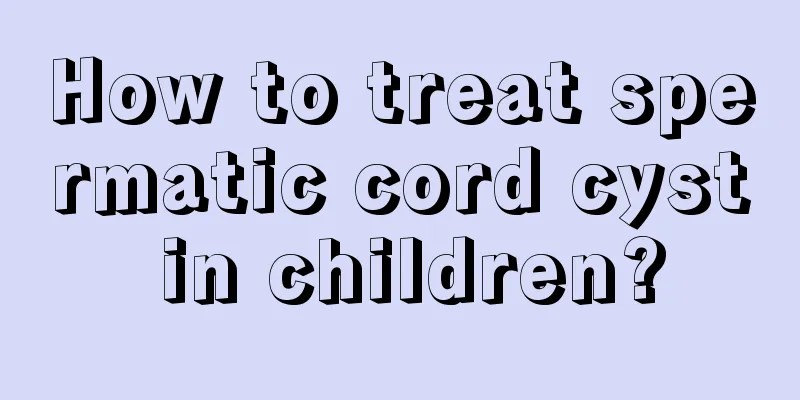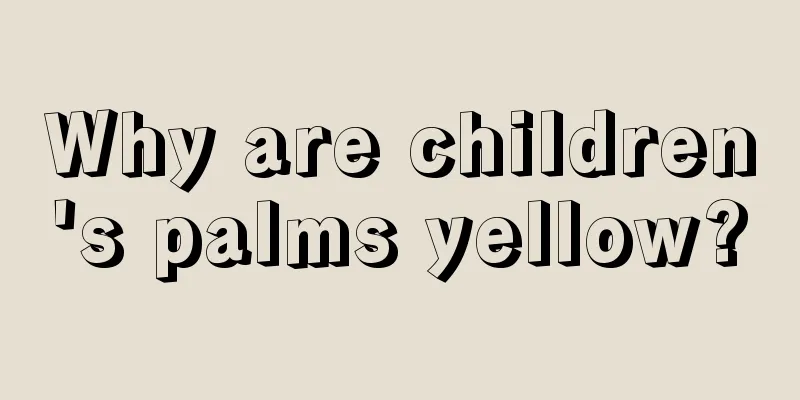What to do about eczema in children? 6 methods combined with treatment

|
Infant eczema is also called childhood eczema. It is actually an allergic dermatitis, a chronic inflammation, and a common skin disease in infants and young children. Patients will experience itching, which will seriously affect the sleep of infants and young children. If not properly protected, children will naturally scratch with their hands, which will cause greater harm to the skin, so parents must learn the following coping measures. 1. Diet management It is best to find and avoid the allergen. Children who are allergic to milk protein should switch to amino acid formula powder or extensively hydrolyzed protein formula powder. 2. Protect skin barrier function For exudative and dry eczema, if there is no ulceration on the surface, the child should be given some non-allergic moisturizing cream to play a moisturizing role. For severe eczema, topical corticosteroid cream can be applied short-term, which has obvious anti-inflammatory and antipruritic effects. Be careful to avoid long-term and high-dose application to avoid side effects. If the local ulcer is infected, antibiotic ointment needs to be applied locally for anti-inflammatory treatment. 3. Local treatment It is the main means of treating infant eczema, and appropriate medication should be selected according to the stage of eczema. In the acute phase, the main symptoms are redness, swelling and papules. When there is no exudation, it is recommended to use calamine lotion, calamine furazolidone lotion, glucocorticoid cream or gel. When there is a lot of exudation, 1% to 3% boric acid solution or 0.1% furazolidone solution should be used for cold wet compresses. Zinc oxide oil can be used after wet compresses. When there is infection, 1% chloramphenicol zinc oxide oil can be applied externally. In the subacute phase, it is recommended to use 1% to 3% boric acid solution or normal saline for external washing, and apply zinc oxide paste and glucocorticoid cream. For chronic skin lesions, it is recommended to use non-hormonal ointments (such as 20%-40% urea ointment, 5%-10% salicylic acid ointment, etc.) alternately with glucocorticoid ointment. 4. Systemic treatment (1) Oral antihistamines: Oral antihistamines such as chlorpheniramine can be taken under the guidance of a doctor. (2) Systemic administration of corticosteroids, whether oral or intravenous, can quickly control symptoms, but symptoms are prone to relapse after discontinuation and cannot be cured. Long-term use can cause dependence and various adverse reactions, so they should be used with caution. For patients with generalized acute eczema who do not respond well to other treatments, oral prednisone can be taken for a short period of time and the dosage can be gradually reduced after the condition improves. (3) Antibiotics can be used systemically to treat children with widespread infection, fever, and increased white blood cell count. 5. Traditional Chinese medicine treatment Select topical medications according to the stage of eczema and the dryness and wetness of the disease. In the acute stage, you can grind Cnidium monnieri into a fine powder and add Vaseline to make a paste for external application, or boil Isatis indigotica in water and filter the residue for wet application. In the chronic stage, you can grind Evodia rutaecarpa into fine powder and add vaseline to make an ointment for external application. Sanhuang lotion and Huangbo cream are used externally to treat dry eczema. Apply cold wet compresses with decoction of raw Sanguisorba officinalis, Phellodendron chinense or a mixture of Portulaca oleifera and 2% boric acid water. After the erosion is alleviated, apply indigo oil or egg yolk oil externally to treat seborrheic and eczema. Oral medicines are mainly used to clear heat, detoxify and cool blood. 6. Physical therapy Ultraviolet radiation therapy can be used for chronic and stubborn eczema. |
<<: Is there any trick to stop children from eating milk powder?
>>: What is the correct way to give cough medicine to young children?
Recommend
How can children nourish their brains?
Only with good intelligence can you have a good f...
What to do if your baby has ringworm
As we all know, most families in China can only h...
Why is the child's skin yellow?
Newborn babies always have yellow skin, which usu...
What to do if your child's cheeks flare up
Many people have not heard of the symptoms of mum...
Why do children drool a lot?
It is actually normal for babies to drool a lot. ...
What should a four-year-old child eat when he has a cough?
Colds, coughs and fevers are diseases that are ve...
6 month old baby constipation after eating rice cereal
When adding complementary foods to six-month-old ...
What causes a child’s big belly?
Many parents will find that their child's bel...
What to do if a child has wind-heat cough and phlegm
When the seasons change, children are most likely...
What causes a child's heart to beat too fast?
There are many common problems among children. In...
Causes and treatment suggestions for red bloodshot eyes in newborns
Bloodshot eyes are a problem even for adults, so ...
How to treat a child's knee abrasion
In life, many parents are worried about their chi...
What should I do if my child is under a lot of pressure at school?
Every parent expects their child to succeed, so t...
What medicine is used for hand, foot and mouth infusion
Hand, foot and mouth disease is a highly contagio...
How to treat white dandruff on a child’s head?
Dandruff is no stranger to everyone, because ever...









